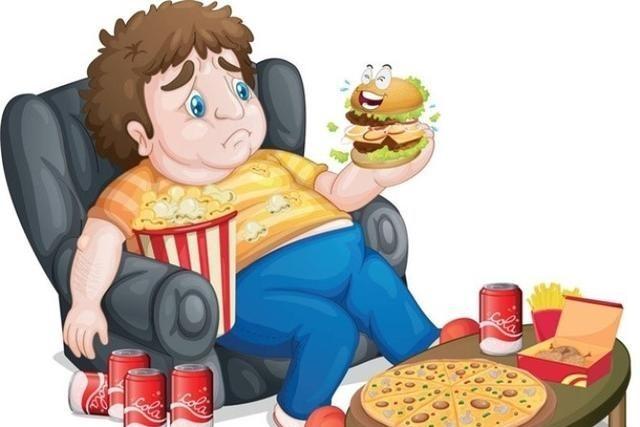Some time ago, a young man conducted an experiment to explore the health effects of sugary drinks. Without changing the premise of living habits, drink 3 cans of 335 ml of sugary drinks every day for 15 days. On the 8th day of drinking, the face began to have acne; on the 12th day, I felt that my mental state deteriorated, and I often dozed off when I went to work; on the 15th day, I found that the waist circumference had increased by 4.5 centimeters, and the weight, fat and other indicators were in an upward state. Many young people, from a young age, began to drink drinks, and when they grew up, they felt that boiled water had no taste and were not used to drinking. These people, knowing that sugary drinks can have a detrimental effect on their health, however, can't quit. Why? Recently, 1 new study brought the answer to this question.

Sugary drinks, which are consumed increasingly worldwide, are also accumulating negative health effects, with studies showing that 184,000 deaths each year are attributed to sugary drinks. The main ingredient in sugary drinks is artificial sweeteners, which, because they do not produce calories, were once considered a healthy alternative. However, a large number of studies have found that the more sugary drinks are consumed, the greater the risk of premature death. For example, Mexico, where the highest per capita consumption of sugary drinks, had 318 deaths per million people; in Japan, where per capita consumption of sugary drinks was lowest, related deaths were 10 per million people. Studies have shown that sugary drinks are associated with excessive weight gain, which in turn increases the risk of death from diseases such as diabetes, cardiovascular disease, and cancer.
Many people are aware of the potential health risks posed by sugary drinks, but they also find it difficult to quit drinking. Why is it that after drinking a drink, you are not satisfied, but it stimulates the appetite and makes people eat more food? Artificial sweeteners, why not bring the satisfaction that real sugar provides? Is there some kind of mysterious monitoring mechanism hidden in our body that can distinguish between real sugar and fake sugar? Yes, it really is.
As early as 20 years ago, scientists found that after knocking out the taste buds in the mouths of mice, mice were still able to distinguish between sugar and sweeteners, and mice preferred sugar. Recently, a team of researchers at Duke University School of Medicine published a paper in the Nature series of Neurology fascicles that finally uncovered the mystery. Studies have shown that although artificial sweeteners can fool the taste buds, intestinal cells are too shrewd to distinguish between real sugar and fake sugar in a few milliseconds, and transmit the signal of this difference to the brain in real time. What the hell, there is no real sugar in this sweet thing, hurry up, eat real sugar, eat more, and then dare to cheat, just rebel.
The research team first used artificially cultured small intestine and duodenal organoids to observe, and found that real sugar stimulates neuropodocytes and releases glutamic acid, while artificial sweeteners trigger the release of another neurotransmitter. Using optogenetic techniques, the research team made observations by turning on or off neuropodocytes in the intestines of living mice. It was found that when neuropodocytes were turned off, the mice no longer showed a pronounced preference for true sugar.
In-depth studies have shown that neuropodocytes, like the taste buds in the tongue, are sensory cells that can taste taste, can distinguish between true sugars and sweeteners, and release different neurotransmitters, and the associated signals will reach the vagus nerve within a few milliseconds and then be transmitted to the brain. Change eating behavior through the dialogue between the intestines and the brain. The study also found that if the neuropod cells in the mice's intestines were left in a silent state, the mice no longer favored natural sugars. The conclusion of this study reminds everyone that our bodies are in the fine regulation of a variety of systems, and if we cannot conform to the regulatory mechanisms accumulated in human evolution and go against the genes, we will be punished, due to bad life behavior, resulting in the potential threat of breeding diseases.
The adverse health effects of sugary drinks have been confirmed by many studies. For example, studies by American scholars have shown that 1 to 4 times a month of sugary drinks increases the risk of premature death by 1 percent; 2 to 6 times a week sugary drinks increase the risk of premature death by 6 percent; and 1 to 2 times a day increases the risk of 14 percent, and these effects are more pronounced in women. In the latest issue of the British Medical Journal series of Gastroenterology, a paper by the University of Washington research team was published, showing that women's high intake of sugary drinks in adolescence and adulthood increased their risk of colorectal cancer before the age of 50, and the risk of colorectal cancer increased by 32% by drinking sugary drinks every day. Well, research depends on scientists, maintain health depends on yourself, after thinking clearly about the scientific truth, then grasp to change your life behavior.
Whoever loves, pass on health to whom.